Feodor Protar was a healer of Beaver Island in the U.S. state of Michigan. Born in 1837, he began to live on Beaver Island in 1893 and died in 1925. [1]
Contents

Feodor Protar was a healer of Beaver Island in the U.S. state of Michigan. Born in 1837, he began to live on Beaver Island in 1893 and died in 1925. [1]

Protar was born in what is now Tartu, Estonia, then part of the Russian Empire. His birth name was Friedrich Parrot. His date of birth is recorded as February 19, 1837. Parrot's family was part of the Baltic German nobility. In his early adult years, Parrot developed a successful acting career in the Germanosphere, performing for appreciative audiences in Dresden, Berlin, Riga and elsewhere in north and central Europe. Possibly because he ran afoul of House of Romanov's efforts for the Russification the Baltic provinces, Parrot emigrated to the United States in 1874, changing his family name to Protar. He worked a number of jobs, most of them in the theater. However, he eventually became a newspaper editor in Rock Island, Illinois.
In 1893, seeking solitude and an opportunity to get a fresh start in life, Protar established a home on Beaver Island, in northern Lake Michigan. He Russified his first name to Feodor and adopted a lifestyle inspired by the religious movement founded by Leo Tolstoy. He lived alone, sharing the isolated island with a small population of farmers, loggers and fishermen, most of them of whom were Irish-Americans with roots in County Donegal. Protar lived off the land as much as was possible, growing his own food, canning and drying it for sustenance during the long winters. His fellow islanders saw him as a benevolent, if eccentric, humanitarian and follower of a spiritual discipline inspired by Tolstoy.
Trained or self-taught in pharmacology, Protar was eventually pressured by his neighbors into practicing as an unlicensed physician. This was a skill of serious importance to the islanders in the early 1900s, as the technology of the time meant that Beaver Island was isolated from the mainland during the harsh winter months, and the island was not big enough to support a licensed physician. Michigan Department of Licensing and Regulatory Affairs authorities appear to have realized that "Dr." Protar's practice was the only solution to the island's medical access dilemma, and to have looked the other way.
Protar died in his Beaver Island cabin on March 3, 1925, apparently of a stroke. Islanders buried his body beside a boulder in the forest near his home that he was particularly fond of and erected a monumental enclosure around his grave, with a plaque expressing appreciation for his many years of service to the island community.
"Dr." Protar's life is celebrated by the Beaver Island Historical Society, which operates a small waterfront museum in St. James, the island's harbor. Protar's grave was built by local resident William McDonough.

The House of Tolstoy, or Tolstoi, is a family of Russian gentry that acceded to the high aristocracy of the Russian Empire. The name Tolstoy is itself derived from the Russian adjective "толстый". They are the descendants of Andrey Kharitonovich Tolstoy, who moved from Chernigov to Moscow and served under Vasily II of Moscow in the 15th century. The "wild Tolstoys", as they were known in the high society of Imperial Russia, have left a lasting legacy in Russian politics, military history, literature, and fine arts.
Francis Brett Young was an English novelist, poet, playwright, composer, doctor and soldier.

Beaver Island is an island in Lake Michigan in the U.S. state of Michigan. At 55.8 sq mi (145 km2), it is the largest island in Lake Michigan and the third largest island in Michigan after Isle Royale and Drummond Island. The island is located approximately 32 miles (51 km) from the city of Charlevoix. Beaver Island had a total population of 616 at the 2020 census. Beaver Island is part of Charlevoix County.
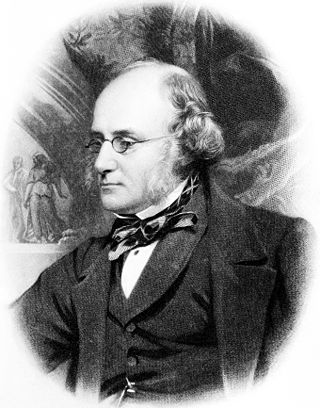
John Brown was a Scottish physician and essayist known for his three-volume Horae Subsecivae, containing essays and papers on art, medical history and biography. Best remembered are his dog story "Rab and his Friends" (1859) and his essays "Pet Marjorie" (1863), on Marjorie Fleming, the ten-year-old prodigy and alleged "pet" of Walter Scott, "Our Dogs", "Minchmoor", and "The Enterkine". Brown was half-brother to the organic chemist Alexander Crum Brown.
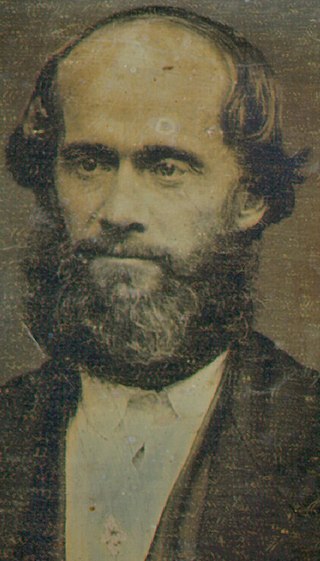
James Jesse Strang was an American religious leader, politician and self-proclaimed monarch. He served as a member of the Michigan House of Representatives from 1853 until his assassination.
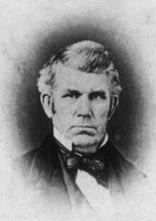
Epaphroditus Ransom was an American politician who served as the seventh governor of Michigan and as a justice of the Michigan Supreme Court.

Marie Elisabeth Zakrzewska was a Polish-American physician who made her name as a pioneering female doctor in the United States. As a Berlin native, she found great interest in medicine after assisting her mother, who worked as a midwife. Best known for the establishment of the New England Hospital for Women and Children, she opened doors to many women who were interested in the medical field and provided them with hands-on learning opportunities. Within the New England Hospital, she established the first general training school for nurses in America. Her drive and perseverance made the idea of women in medicine less daunting. She also initiated the creation of the first sand gardens for children in America.
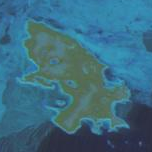
Garden Island is an uninhabited 4,990 acre (20 km2) island located in the Beaver Island archipelago in northern Lake Michigan. It is almost wholly owned by the U.S. state of Michigan and is overseen by the Michigan Department of Natural Resources (DNR) as part of the Beaver Islands State Wildlife Research Area. It is accessible by private boat. The Native American name for the island is Minis Gitigaan, which has become Garden Island by direct translation. The Island's Native American cemetery was listed in the National Register of Historic Places in March 1978.

Edward Livingston Trudeau was an American physician who established the Adirondack Cottage Sanitarium at Saranac Lake for the treatment of tuberculosis.

Henry Franklin Thomas was an American physician and politician from the U.S. state of Michigan. He served two terms in the United States House of Representatives from 1893 to 1897

Harriet or Harrieta Keōpūolani Nāhiʻenaʻena (1815–1836) was a high-ranking princess during the founding of the Kingdom of Hawaii and the conversion of some of the ruling class to Christianity.

William Douglas Ward was an American college football player and coach, physician and surgeon. He played football at Princeton University from 1893 to 1894 and was the coach of the University of Michigan football team in 1896. He later became a physician and surgeon in Rochester, New York. He was a pioneer in early surgical procedures to construct artificial vaginas and published an article on the subject in 1915.

Frank Joseph Sexton was a baseball player and coach. He played college baseball for Brown University from 1890 to 1893 and for the University of Michigan in 1894. He also played professional baseball from 1890 to 1897, including one season in Major League Baseball as a pitcher for the Boston Beaneaters. He later coached college baseball at the University of Michigan, Brown University (1903–1910) and Harvard University (1911–1915). He also maintained a medical practice at Brookline, Massachusetts for many years.

Fyodor Kuzmich, also known as the Righteous Theodore of Tomsk, Siberian, elder was a Russian Orthodox starets. He was canonized as a righteous saint by the Russian Orthodox Church in 1984. There are many variations of a legend that claims that he was Alexander I of Russia who faked his death in 1825 to become a hermit. The question is still pending between historians.

Count Berend Gregor Ferdinand von Tiesenhausen was a Russian noble and military officer of German Baltic origin.

Mary Hancock McLean was a physician and missionary. Born to Elijah McLean, a physician, and Mary Stafford, she enjoyed a privileged childhood with academic opportunities uncommon for girls of her time period. After graduating from the University of Michigan Medical School, she became the first woman to hold an official position at the St. Louis Female Hospital and the first woman admitted to the St. Louis Medical Society.
Andrew Halliday Douglas (1819-1908) was a Scottish physician who served as President of the Royal College of Physicians of Edinburgh 1869 to 1871. He was one of the founders of the Edinburgh Medical Missionary Society with Peter David Handyside.

The Feodar Protar Cabin is a historic log cabin located on Sloptown Road west of Donnel Mor's Lane in Peaine Township, Michigan, near St. James, Michigan on Beaver Island. It was listed in the National Register of Historic Places in 1972. As of 2017, it is operated as a museum by the Beaver Island Historical Society.
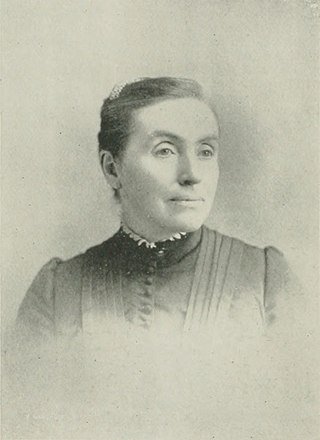
Mary Jane Blair Moody was an American physician, anatomist and editor. She was the first woman to earn a degree from Buffalo Medical College, the first female member of the American Association of Anatomists, and one of the first women to practice medicine in New Haven, Connecticut. Her home there is listed on the National Register of Historic Places as the Dr. Mary B. Moody House.
Ebenezer Raynale was an American physician and politician. He served two terms in the Michigan Senate following the adoption of the first state constitution.
"Protar: A Different Life" by Antje Price, 2006